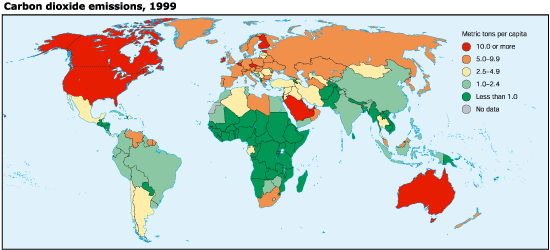One of the major issues in the U.S. these days is the health care bill that was just passed by congress. But how does the bill affect the environment? Hospitals in America generate 6,600 tons of waste everyday, and the plan will hope to eliminate duplicate files to reduce paper and a centralized database to reduce paperwork (Earth 911.com). But with increased coverage to more people will come increased waste.
Another issue would be prevention of diseases. The bill does help support preventative programs like Bright Futures which helps guide families to help with physical, societal and environmental factors for their children’s health (Carden Johnston). But does it do enough? If the air quality was better and pollution decreased then many sicknesses could be prevented. Many organic foods are healthier and could keep people out of the hospital while at the same time they are often friendlier to the environment. Would attempts to curtail pollution and encourage healthier lifestyles help with the health care, and what other ways could congress help with prevention of diseases and hospital waste?
Lincoln, Cat. "Health Care Reform, Pollution, and Sustainability." Green Daily. Web Blog, Inc, 22 March 2010. Web. 28 Mar 2010.
Chen, Katherine. "Health Care Reform's Eco Impact." Earth911. N.p., 22 Feb. 2010. Web. 28 Mar 2010.
Johnston, Carden. "VIEWPOINTS: Health Care Bill is good for all Children." al.com. Alabama Live, 28 March 2010. Web. 28 Mar 2010.

There is no proof that organic is healthier than a regular option. Non organic broccoli is still better for you than an organic cookies. also organic is not nesacarily better for the enviroment, organic crop yields are smaller and even less sustainable than the regular options becuase you can grow more crops on the same piece of land. while there are no pesticides being used for organic crops, there would have to be more land devoted to organic farming, which has different negative implications for the enviroment.
ReplyDeleteI think the health care bill was bogged down enough without adding on an environmental air quality standard.
ReplyDeleteIt has been proven though that smog, like that found over Los Angeles, is a cause for an increase in hospital visits for chronic respiratory problems. However, most cities that have a smog problem do have clean air standards and work to eliminate the problem. It is in their best interest for property value and tourism.
http://news.stanford.edu/pr/97/971211uvaerosol.html
I will admit I don't know that much about the healthcare issue and the bill that was passed a few weeks ago, but I definitely think we should address the core health problems before we give healthcare away for free. We should tax the shit out of cigarettes, candy, and soda. This revenue alone could pay for a lot health care services. Food production must change as well. Mass producing meat, corn, rice, and potatoes that make up the majority of americans' diet is also causing numerous environmental issues. Transporting these foods also increases the carbon footprint. Local, organic food would definitely help prevent health issues such as heart disease, and would benefit the environment as well.
ReplyDeleteHealth care reform effects numerous areas of our society, political, economic, social, and environmental. Environmental effects would be unlikely to garner serious consideration in a health care bill, simply because the focus is on human well-being, and this is likely to take precedent over environmental concerns in the eyes of the public.
ReplyDeleteI went to a panel of people with jobs in the environment this semester and one of the speaker's was the sustainability director for Boulder Community Hospital. He mentioned that he created this position for himself, and that as we move into a more environmentally friendly future positions such as his will be more prevelant. He also mentioned that since no one has ever held that position before, there aren't really any outlines for his job and his daily tasks regulary change and are often unprecedented. As you mentioned in your article, he also touched on how energy intensive hospital's are and that the amount of good often overshadow's the amount of environmental degratdation and subsequently public health issues they create. I think the health care bill is a great thing for society, we just need hospital's to be more aware of their waste and their energy use.
ReplyDeleteDigital medical records and preventative health will work to eliminate waste associated with the health care industry. Incentives to insurance providers to promote preventative care will be the most beneficial outcome to "universal" health care. Furthermore, peace of mind associated with health coverage will make industries more productive and efficient.
ReplyDeleteI was able to sit0in an economic meeting in Florida, where they discussed the health care bill. I like many of you have not been able or want to turn threw the 2,700 page document. However, some medical personal were able to comment on how doctors will possible be issued palm pilots (or Ipads) that will access them to any patients medical records. This like Brad stated earlier, would dramatically decrease the amount of waste that is emitted from hospitals throughout the nation.
ReplyDeleteCentralization of records will not only reduce wasteful use of resources but also make the healthcare system more efficient. With the issue of healthcare there are so many other factors that I believe the environmental effects take a backseat. By possibly stressing these gains more support would be gained for the legislation as a whole.
ReplyDelete